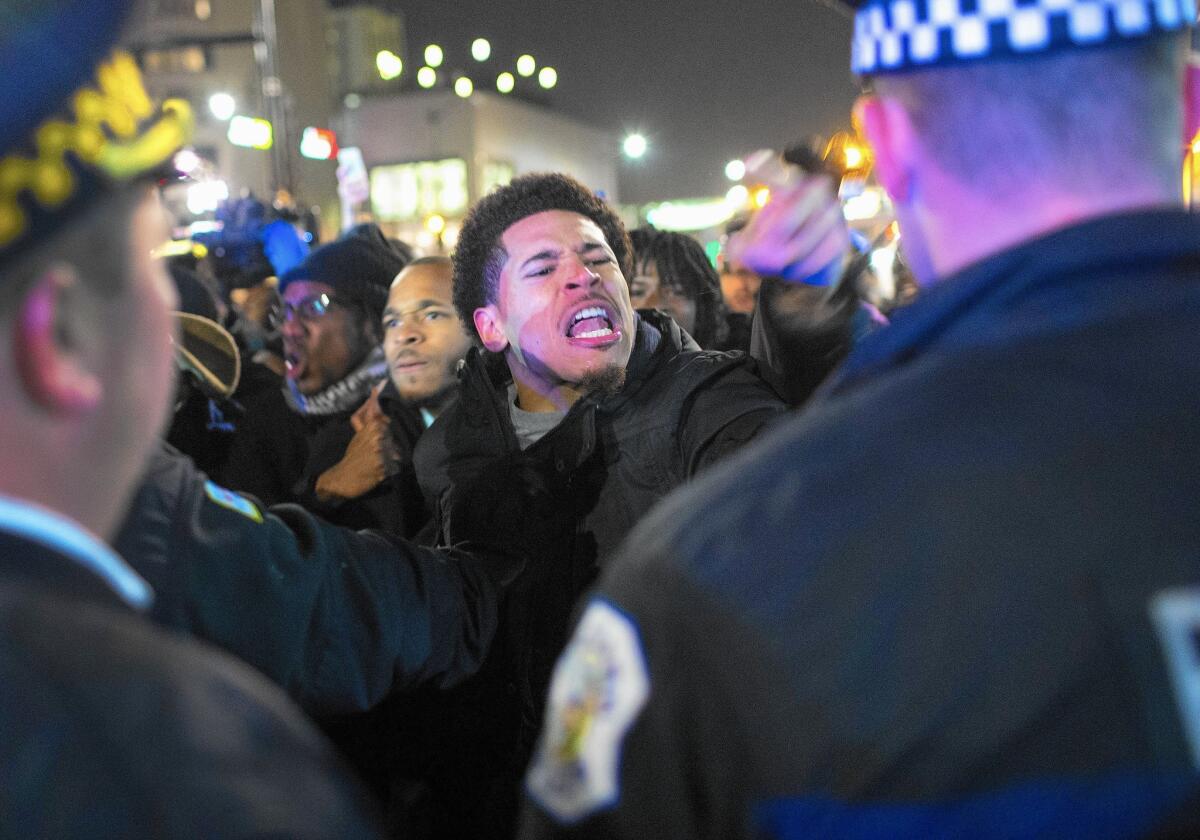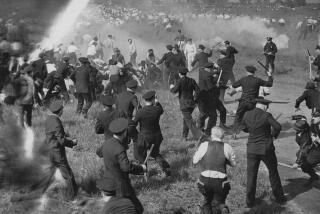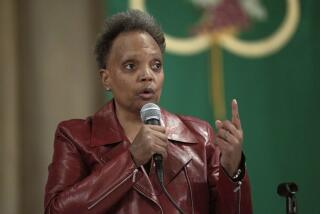Two police killings of young black men, and how two cities responded

Demonstrators in Chicago confront police after the release of a video showing Officer Jason Van Dyke shooting and killing 17-year-old Laquan McDonald.
A young black man dies at the hands of police. Community members grow angry as officials limit the release of information to a trickle.
The city governments of Baltimore and Chicago have been similarly shaken this year by large protests over how officials have handled homicide investigations into their police officers.
In both cities, Democratic mayors have come under fire from African American community members, and both mayors fired the leaders of their embattled police departments.
And perhaps most unusual, prosecutors overseeing both cities have filed criminal charges against the officers accused of wrongdoing.
BALTIMORE
What happened: On April 12, four Baltimore police officers on bicycles attempted to stop and arrest Freddie Gray, 25, who had run away from them. Officers put Gray in a van, and Gray mysteriously suffered a critical injury during transport.
Gray slipped into a coma and died a week later, which intensified protests and which culminated with a riot on April 27.
The mayor: Stephanie Rawlings-Blake, a 45-year-old rising star in the Democratic Party, struggled with how to respond to the riots and announced in September that she would not seek reelection.
“I knew that that I needed to spend time, the remaining 15 months of my term, focused on the city’s future and not my own,” Rawlings-Blake said of campaigning.
Top cop: Police Commissioner Anthony W. Batts, who was previously the police chief in Oakland and Long Beach, had promised reform when he arrived in Baltimore in 2012. But the mayor fired Batts in July as the city saw a major increase in homicides following the Gray protests and police union officials criticized his management.
“Families are tired of feeling this pain, and so am I,” Rawlings-Blake said. “We need a change.”
The prosecutor: State’s Atty. Marilyn Mosby became an instant political celebrity on May 2 when she passionately condemned the six officers who arrested and transported Gray and announced criminal charges against them.
“I heard your call for no justice, no peace,” said Mosby, whose announcements drew celebrations among protesters around the city. “No one is above the law.”
What’s next: Opening arguments began Wednesday in the first trial for one of the six officers charged in Gray’s death, William G. Porter.
Prosecutors say Porter was criminally negligent when he didn’t belt Gray in the back of the police van or help when Gray complained about being injured. Porter has pleaded not guilty to charges of involuntary manslaughter, assault, reckless endangerment and misconduct in office.
CHICAGO
What happened: In October 2014, Chicago Police Officer Jason Van Dyke shot 17-year-old Laquan McDonald 16 times on the street as a police dashboard-camera video showed McDonald walking away with a knife in his hand. Officers had originally responded to a report that McDonald was breaking into trucks.
This November, a Cook County judge forced city officials to release the startling footage of the shooting, which prompted angry protests in Chicago last week.
The mayor: Rahm Emanuel, President Obama’s former chief of staff, has come under widespread criticism over allegations that he has not pushed harder for reforms to Chicago’s police department.
Emanuel has refused calls to resign, and announced plans Tuesday to form a five-member task force to “review the system of accountability, oversight and training that is currently in place for Chicago’s police officers.”
Top cop: On Tuesday, Emanuel fired police Supt. Garry McCarthy, who, like Baltimore’s Batts, had been brought on board four years earlier as a reformer.
“Supt. McCarthy knows that a police officer is only as effective as when he has the trust of those he serves,” Emanuel said, adding it was “undeniable” that “the public trust in the leadership of the department has been shaken and eroded.”
The prosecutor: Even though Cook County prosecutor Anita Alvarez charged Van Dyke with first-degree murder for McDonald’s shooting, she has come under heavy criticism for doing so more than a year after McDonald’s death — and on the same day the shocking footage was released.
Alvarez said she had decided weeks earlier to charge McDonald, but the order to release the video forced her to move up the charging date. Alvarez called the video “graphic,” “violent” and “chilling” and said it “no doubt will tear at the hearts of all Chicagoans.”
What’s next: Alvarez’s office must now prepare for trial against Van Dyke, who was on paid desk duty with the department until he was charged, at which point he was placed on unpaid leave.
Van Dyke was released from jail on Monday after his father posted a $150,000 cashier’s bond for the $1.5-million bail set by a judge. A police union official said Van Dyke’s actions were justified. Van Dyke faces at least 20 years in prison if convicted.
Twitter: @mattdpearce
ALSO
After many failures, GOP poised to pass Affordable Care Act repeal bill
Dissing Iowa? O’Malley throws caucus card down against Clinton
Texas sues to block Syrian refugees from settling in state
More to Read
Sign up for Essential California
The most important California stories and recommendations in your inbox every morning.
You may occasionally receive promotional content from the Los Angeles Times.











